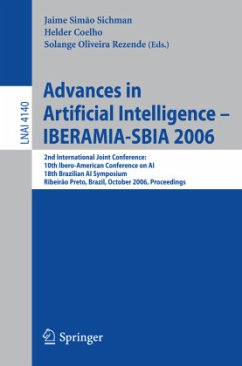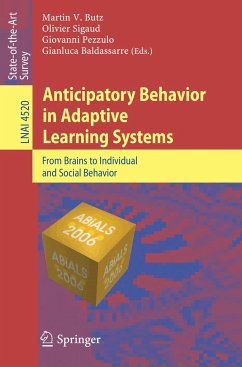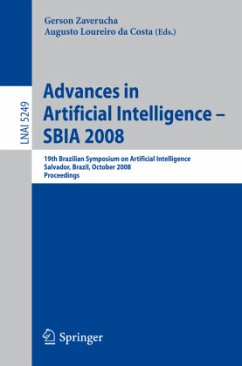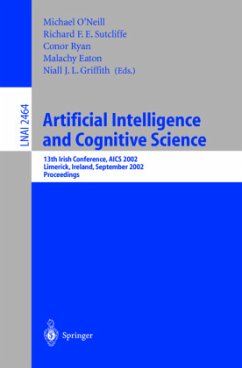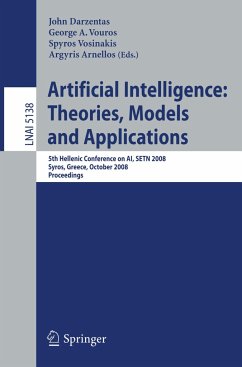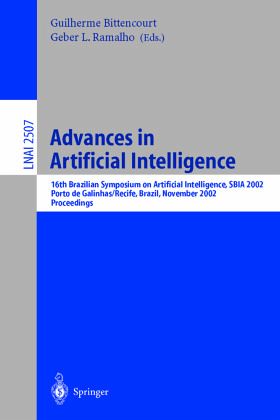
Advances in Artificial Intelligence
16th Brazilian Symposium on Artificial Intelligence, SBIA 2002, Porto de Galinhas/Recife, Brazil, November 11-14, 2002, Proceedings
Herausgegeben: Bittencourt, Guilherme; Ramalho, Geber L.

PAYBACK Punkte
20 °P sammeln!
The biennial Brazilian Symposium on Arti?cial Intelligence (SBIA 2002) - of which this is the 16th event - is a meeting and discussion forum for arti?cial intelligence researchers and practitioners worldwide. SBIA is the leading c- ference in Brazil for the presentation of research and applications in arti?cial intelligence. The ?rst SBIA was held in 1984, and since 1995 it has been an international conference, with papers written in English and an international program committee, which this year was composed of 45 researchers from 13 countries. SBIA 2002 was held in conjunction with the VII B...
The biennial Brazilian Symposium on Arti?cial Intelligence (SBIA 2002) - of which this is the 16th event - is a meeting and discussion forum for arti?cial intelligence researchers and practitioners worldwide. SBIA is the leading c- ference in Brazil for the presentation of research and applications in arti?cial intelligence. The ?rst SBIA was held in 1984, and since 1995 it has been an international conference, with papers written in English and an international program committee, which this year was composed of 45 researchers from 13 countries. SBIA 2002 was held in conjunction with the VII Brazilian Symposium on Neural Networks (SBRN 2002). SBRN 2002 focuses on neural networks and on other models of computational intelligence. SBIA 2002, supported by the Brazilian Computer Society (SBC), was held in Porto de Galinhas/Recife, Brazil, 11-14 November 2002. The call for papers was very successful, resulting in 146 papers submitted from 18 countries. A total of 39 papers were accepted for publication in the proceedings. We would like to thank the SBIA 2002 sponsoring organizations, CNPq, Capes, and CESAR, and also all the authors who submitted papers. In particular, we would like to thank the program committee members and the additional referees for the di?cult task of reviewing and commenting on the submitted papers.





